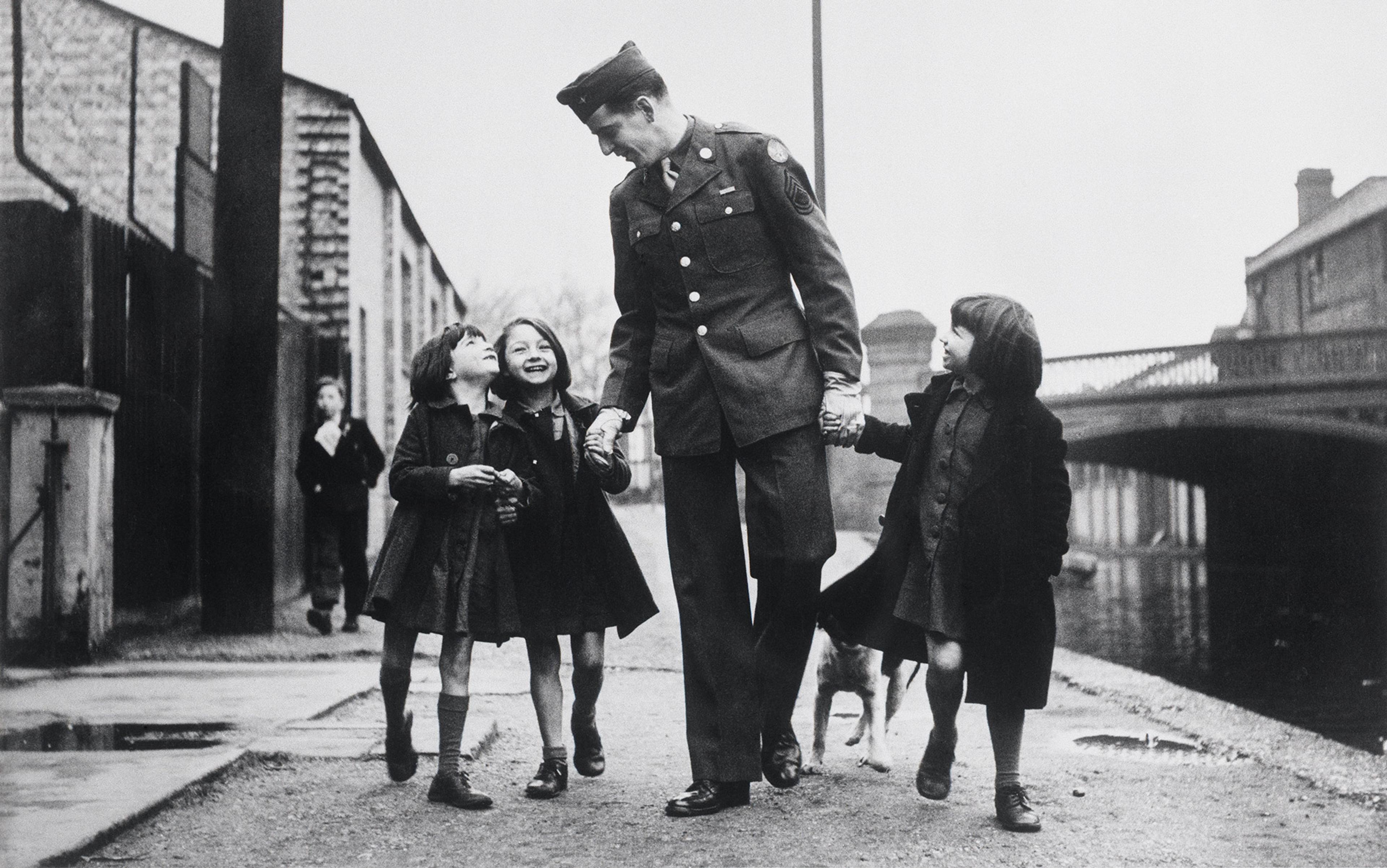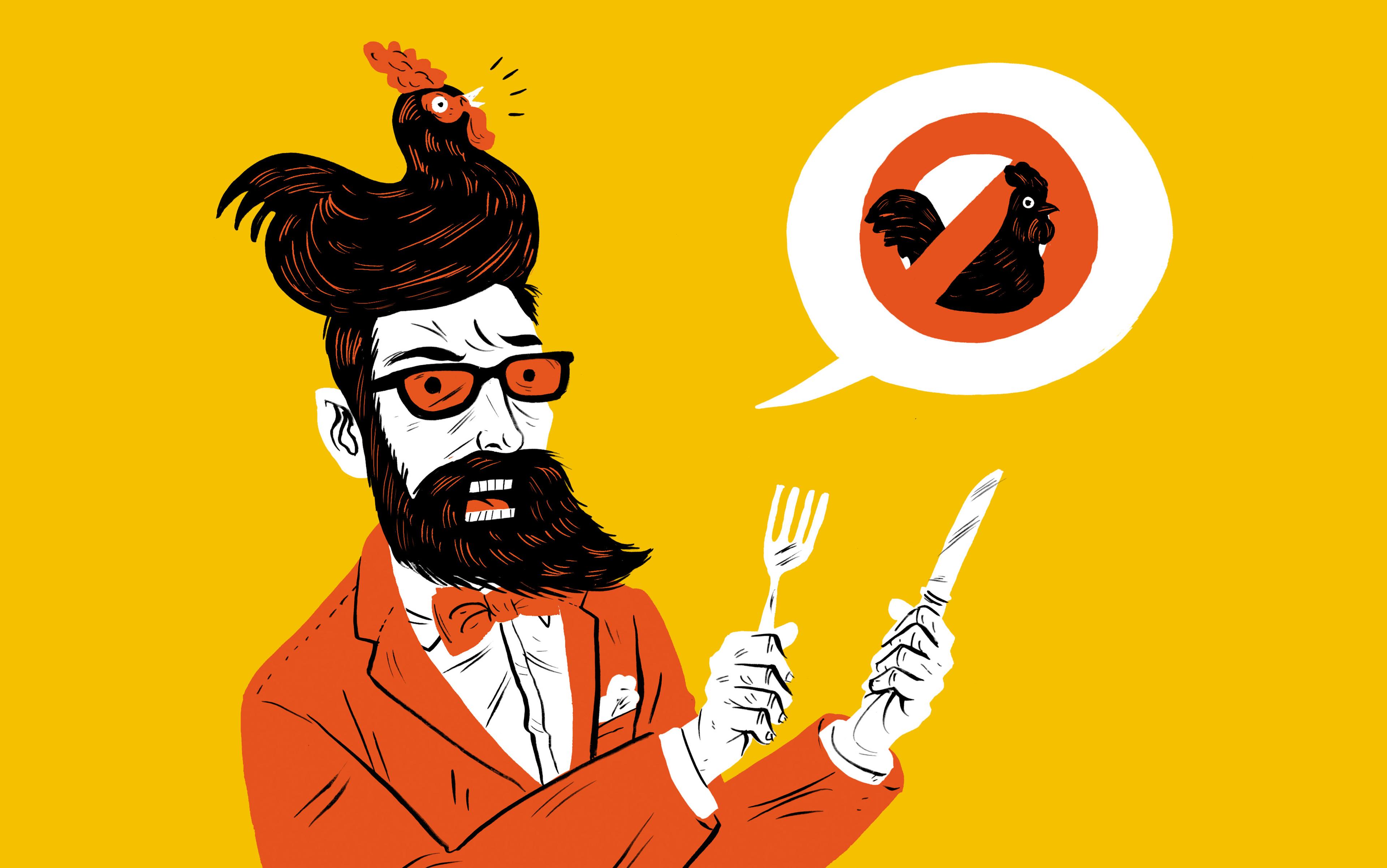At a dinner party, you find yourself seated next to a man named Sam. He’s a new acquaintance, but it turns out the two of you have several friends in common – so you’re keen to make a good impression. On that score, things seem to be going quite well. The talk is flowing and your companion gives every sign of finding you witty and engaging.
And then, all of a sudden, the mood turns a little sour. Sam makes eye contact less frequently. Conversation grows awkward. Was it the story about the prank you pulled back in college? Your opinions on the election? You glance in Sam’s direction. He’s definitely looking at you a little strangely. What on earth did you do? Taking advantage of a lull in the festivities, you start replaying portions of your conversation in your head.
It’s strange, but Sam’s cooling attitude delivers a shock to your system. In a word, you have become anxious – and so a lot of things happen at once. You’re thinking hard, trying to understand what just took place and what you could say to recover your earlier rapport. You find yourself acting in a more cautious and deferential manner. You’re hesitant to engage Sam in conversation again and, when you do, you’re more inclined to apologise when you accidentally interrupt him. You even start trying to insert comments here and there with the hope of clarifying, or mitigating, some of your earlier political remarks. You can feel it happening. Anxiety is starting to take over. You fear the result won’t be good.
But just how bad is anxiety, really? Is it just an unpleasant feeling to work through, or something worse? According to a very distinguished tradition, one that stretches all the way back through the Stoics and Aristotle to Plato, it is worse. Much worse. When we’re anxious, we fret and ruminate in ways that don’t just distract us, but consume us. What’s more, because anxiety tends to be so unpleasant, we act impulsively – doing whatever we think will make the feeling go away. For these reasons, the classical consensus has it that such emotions are to be avoided.
Immanuel Kant suggested an even graver problem with anxiety: it is incompatible with virtue. For Kant, the virtuous individual is someone who has brought ‘all his capacities and inclinations under his (reason’s) control’; therefore, he writes in The Metaphysics of Morals (1797), the ‘true strength of virtue is a tranquil mind’. But when we’re anxious, our minds are anything but tranquil. We lack the rational control that’s distinctive of virtue: it is emotion, not reason, that determines our behaviour. That’s bad.
This picture of anxiety as a dark and pernicious force certainly has illustrious supporters. Even so, I believe that it is mistaken. It goes against the grain to say this, but anxiety can be a good thing. Indeed, I hope to persuade you that it is central to our ability to successfully navigate moral and social life. I won’t go as far as to say that we need more of it, but we should cultivate it. Worry is important; we should get it right.
What might our little dinner party story tell us about this puzzling emotion? For starters, it reveals something about what it is. Anxiety, as we ordinarily experience it, is a moderately discomforting response to uncertain threats or dangers. Your fretfulness at the dinner party, for instance, is a reaction to your uncertainty about why your conversation with Sam took a potentially embarrassing turn. You want to make a good impression and you aren’t sure if you’re succeeding. The result is the unease – the twinge of worry or concern – that is your anxiety.
The story also tells us something about what anxiety does. It’s an emotion that gets us to do things, things that can help us to address our predicaments in distinctive ways. At the dinner, for instance, your anxiety prompts you to try to get a better understanding of what you might have said that was inappropriate – hence your replaying of portions of the conversation in your head. It also induces you to try to make up for any offence you might have caused, hence your increased deference.
This idea of anxiety as a helpful emotion stands in sharp contrast to the skepticism we saw from Kant and others. But it’s a vision endorsed by clinical psychologists such as David Barlow, founder of the Center for Anxiety and Related Disorders at Boston University. As Barlow explains in Anxiety and Its Disorders (2002), anxiety ‘functions to warn of a potential danger situation and triggers the recruitment of internal psychological mechanisms’. These mechanisms are important because they allow us to engage in ‘a higher and more mature level of functioning’. In run-of-the-mill social anxiety, for example, we have an emotion that enables us to better understand and navigate our social interactions.
But run-of-the-mill social anxiety isn’t the only type of worry we experience. We can also fret about such things as whether God exists or whether it’s okay to break a promise that we’ve made. What can we say about these other forms of anxiety – are they also emotions that it can be good to have? Oftentimes, yes, they are.
Using the wrong spoon is one thing, but breaking an important promise is quite another
Social anxiety of the kind we found in the dinner-party conversation with Sam is concerned with a distinctive kind of uncertainty – namely, are you making a fool of yourself? As such, it can often lead to such things as deference and caution: behaviours that can help us to minimise the chance of making a bad impression. But consider another familiar form of anxiety – what we might call punishment anxiety: you know you broke the rules, but you don’t know whether you’ll be thumped for it. Given its source, anxiety of this sort tends to inspire efforts to make up for what you did by, say, offering a pre-emptive apology.
And then there’s existential anxiety, which relates to uncertainty about such things as God’s existence or your place in the world. As such, it’s not surprising that, when we feel it, we tend to reflect on our religious beliefs and ask clergy or other experts to help us with our worries.
Recognising that anxiety comes in these (and other) flavours is significant. For starters, it helps us see that different kinds of anxiety – anxieties of, say, the social, existential or punishment variety – can help us work through different kinds of problematic uncertainty. But, more importantly, we find that certain kinds of anxiety are likely to be more valuable than others. Using the wrong spoon is one thing, but breaking an important promise is quite another. So anxiety that can help us to understand what might be the morally correct thing to do – call this moral anxiety – will be more valuable than the social anxiety that helps us figure out how to avoid the ire of Miss Manners.
Let’s look at another scenario.
Your mother’s Alzheimer’s has advanced dramatically in the past year and you can no longer provide her with the care she needs. You’re inclined to follow her doctor’s recommendation and put her in an elderly care facility. But this decision makes you anxious, and so you start to reflect on the details of the situation that you now face. Your mother was always very concerned about elderly care facilities. In fact, it was only last year, before things really became bad, that you promised her you would never put her in one of those places.
So you have a serious problem on your hands. Should you put her in a home or not? The question keeps you awake at night. You keep going back to it. This thing that you’re experiencing is definitely a kind of anxiety. But notice how it differs from the other situations we considered. You aren’t exactly afraid for yourself, as in punishment anxiety, or merely eager to avoid humiliation, as in social anxiety. No, what you are worried about is doing the right thing.
Moral anxiety, then, is an emotion we feel in the face of a difficult moral decision: we want to do right, but we’re uncertain about what exactly that might be. Moreover, the uncertainty we feel prompts investigation – it gets us to try to figure out what is the morally correct thing to do. We might start thinking about the options available to us, considering the reasons for and against each. We might also seek out more information from those we trust. Putting this together, then, we can see moral anxiety functioning in two ways: as a signal telling us that we face a difficult moral decision and as a motivator that prompts such things as deliberation and information-gathering.
It appears to work, too. Recent experiments by the political scientist Michael MacKuen at the University of North Carolina at Chapel Hill and colleagues, published in 2010 in the American Journal of Political Science, suggest that anxiety about moral and political matters can get us to think in a more open-minded manner. MacKuen found that when people’s views about the appropriateness of affirmative-action policies were challenged, they tended to become either anxious or angry. No surprise there. But here’s the interesting part: those who became anxious showed a greater tendency to seek out more information about the policies in question, a greater interest in learning more about both sides of the issue, and – perhaps most surprisingly – an increased willingness to explore new solutions to the problem. The angry folks, by contrast, were less interested in informing themselves, and when they did seek out more information, they tended to just look for things that were in line with their initial views.
this anxiety reflects something admirable about you: a sensitivity to the complexity of moral life
We’re beginning to see why moral anxiety is valuable. It’s an emotion that helps us better understand and negotiate the complexities of moral life. Moreover, we can also explain how it does this. It operates as a kind of disruptive signal: something that butts in to interrupt whatever we’re doing, prompting us to reassess what we’re up to.
Consider the nursing-home story: your mother’s doctors have just told you that, given the advanced state of her Alzheimer’s, it is time to put her in a care facility. You’re inclined to go along with their recommendation, but you are also worried. This disrupts your initial inclination to just blindly follow the doctor’s advice. In fact, it prompts a train of thought that gets you to both recall your promise and start thinking through your mother’s concerns and fears. So, even if you do decide that it’s permissible to break your promise and put your mother in a care facility, anxiety has played an important role. It has helped you to recognise the moral significance of your decision.
Once we notice that moral anxiety plays this role, we can see that its value doesn’t just lie in its ability to help us make good decisions. After all, the anxiety that you feel about whether to break your promise to your mother reflects something admirable about you: a sensitivity to the complexity of moral life. Anyone who didn’t respond as you did would seem morally deficient, like a person who is devoid of anger in the face of a heinous crime.
It looks as though Kant’s highly rationalistic picture of virtue misses something important – namely, that a tendency to feel morally anxious in the face of a difficult decision is an essential element of good moral character. It brings the moral awareness and concern that is central to virtuous thought and action.
We have heard the case for moral anxiety: namely, that it’s an emotion that can contribute in distinctive and important ways to our ability to think and act morally. But it’s also true that anxiety – moral or otherwise – can go awry. We see this in clinical manifestations such as social anxiety disorder and post-traumatic stress disorder as well as in situations where anxiety gets the better of otherwise healthy individuals. This might raise concerns about whether moral anxiety really is as valuable as I’ve been making it out to be.
moral anxiety is something we should learn to feel at the right times and in the right ways
There are two things to say to this. Firstly, acknowledging – as we should – that moral anxiety can sometimes cause problems does not undermine the claim that it is a generally beneficial emotion. In this way, the situation with moral anxiety is no different to what we find for fear or anger: these emotions are good things to have even though they can, at times, express themselves in unfortunate ways – as phobias or rage. But, secondly, given the possibility that moral anxiety can go awry, it (like anger or fear) will be more valuable to the extent that it’s something that we cultivate.
Now, importantly, to say that moral anxiety is an emotion to cultivate is not to suggest that we should want to experience it more often or more intensely. Rather, it’s to say that moral anxiety is something we should learn to feel at the right times and in the right ways. We should learn to recognise, for instance, when our unease is the result of uncertainty about what the morally correct thing to do might be (as opposed to uncertainty about, say, whether we will be punished or embarrassed).
Cultivating moral anxiety will also involve developing the ability to appropriately channel the unease we’re experiencing. As we’ve seen, part of anxiety’s power lies in its ability to get us to do things – things that will help make the anxiety go away. But there are all sorts of ways to do this. In the face of a morally difficult decision such as what to do about your mother, you could relieve your anxiety by just popping some Xanax or trying to dump the decision off on a relative. But to do that would be to just avoid the source of your anxiety. Appropriately addressing your moral anxiety will involve such things as working through your uncertainty about how best to satisfy your mother’s needs and wishes, and resisting your inclination to just duck the decision you face.
Clearly, cultivating moral anxiety – learning to feel it at the right times and learning to respond to it in the right ways – will require hard work. But you didn’t think being good would be easy did you?






